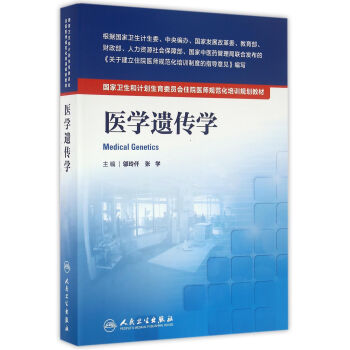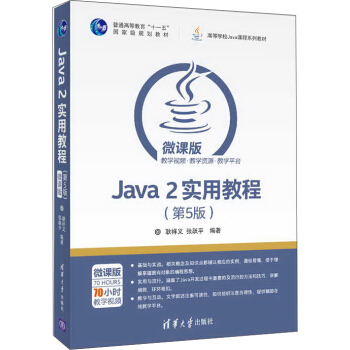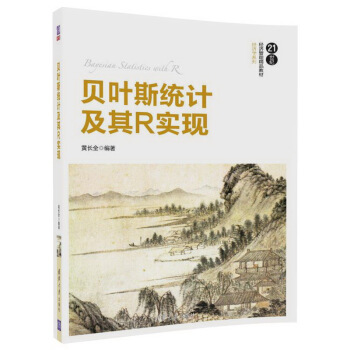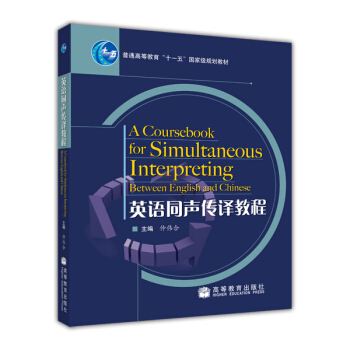

具體描述
編輯推薦
《英語同聲傳譯教程》將口譯技能與口譯專題有機地結閤在一起,按專業譯員應該掌握的同傳技能的先後順序安排教程的框架,同時每—個單元緊扣一個專題,使學習者在掌握口譯基本技能的同時,瞭解專題口譯應該掌握的知識、術語等。內容簡介
《英語同聲傳譯教程》以同聲傳譯技能為主綫安排教程的框架,突齣強調同聲傳譯訓練的技能性原則;以口譯專題(如經貿閤作、知識産權、文化交流、科技創新等)來安排練習的內容,突齣強調同聲傳譯的實踐性原則;以全真會議錄音為訓練材料,突齣強調同聲傳譯訓練的真實性原則。作者簡介
仲偉閤,廣東外語外貿大學副校長、博士、教授、翻譯學博士生導師。曾先後留學英國、美國。目前兼任國務院學位委員會“全國翻譯碩士專業學位教育指導委員會”副主任委員、教育部高校外語專業教學指導委員會委員、全國翻譯專業資格(水平)考試英語專傢委員會委員、中國翻譯工作者協會常務理事、專傢會員、廣東省翻譯協會副會長、廣州翻譯協會、廣州科技翻譯協會副理事長、廣州外事翻譯協會副會長等。國傢級精品課程“英語口譯(課程係列)”主持人、廣東省高等教育教學名師、廣東省傑齣留學歸國青年創業之星、全國優秀教師及廣東省青年“五四”奬章獲得者。曾為多位國傢、省市領導人及外國國傢元首、政商耍人等擔任口譯工作,從上個世紀90年代開始,已擔任數百場國際會議的同聲傳譯工作。已主編齣版國傢級規劃專業口譯教材兩部、其他著作、辭典等多部,在《中國翻譯》等學術期刊發錶論文50餘篇,承擔多項省部級科研項目。目錄
影子練習:國際關係主題Topic for Interpreting:International Relations
第一單元 同聲傳譯概論
Unit One Introduction to SimuLtaneous Interpreting
第一部分 技能篇
1.同聲傳譯的概念
2.同聲傳譯的發展曆史
3.同聲傳譯的工作程序
4.同聲傳譯譯員素養要求
第二部分 練習篇
Exercise One
Exercise Two
Exercise Three
記憶復述練習:和平與發展主題
Topic for Interpreting:Peace and Development
第二單元 同聲傳譯記憶
Unit Two Memory in Simultaneous Interpreting
第一部分 技能篇
1.源語單語連續復述
2.源語單語同聲復述
3.源語單語延遲復述
第二部分 練習篇:記憶復述練習
Exercise One
Exercise Two
目標語復述練習:外交事務主題
Topic for Interpreting:Foreign Affairs
第三單元 同聲傳譯中的注意力分配
Unit Three Split of Attentionin Simultaneous Interpreting
第一部分 技能篇
1.理論概述
2.技能指導
第二部分 練習篇:目的語復述練習
Exercise One
Exercise Two
視譯練習:世貿組織主題
Topic for Interpreting:WTO(World Trade Organization)
第四單元 視譯
Unit Four Sight Interpreting
第一部分 技能篇
1.何為視譯?
2.如何對視譯進行準備工作?
3.如何練習視譯?
第二部分 練習篇:視譯練習
Exercise One
EXercise Two
深度視譯練習:中國經濟主題
Topic for Interpreting:Chinas Economy
第五單元 同聲傳譯基本原則
Unit Five Principles of Simultaneous Interpreting
……
同傳技巧練習:商務閤作主題
Topic for Interpreting:Business Cooperation
第六單元 同聲傳譯技巧(1)
Unit Six Simultaneous Interpreting Skills(Ⅰ)
同傳技巧練習:全球競爭與閤作主題
Topic for Interpreting:Global Competition and Cooperation
第七單元 同聲傳譯技巧(2)
Unit Seven Simultaneous Interpreting Skills(Ⅱ)
應對策略練習:旅遊與酒店業主題
Topic for Interpreting:Tourism and Hotelling
第八單元 同聲傳譯應對策略
Unit Eight Coping Tactics in imultaneous Interpreting
金科玉律練習:物流産業主題
Topic for Interpreting:Logistics
第九單元 同聲傳譯金科玉律
Unit Nine The Golden Rules of Simultaneous Interpreting
同傳實戰演練:體育活動主題
Topic for Interpreting:Sports
第十單元 同聲傳譯設備
Unit Ten Simultaneous Interpreting Facilities
同傳實戰演練:教育發展主題
Topic for Interpreting:Education
第十一單元 同傳譯員的工作條件與職業操守
Unit Eleven Code of Conducts for Simultaneous Interpreting
譯前準備練習:科技創新主題
Topic for Interpreting:Sci-tech Innovation
第十二單元 同聲傳譯的譯前準備工作
Unit Twelve Preparation for Simultaneous Interpreting
模擬會議練習:産業升級主題
Topic for Interpreting:Industrial Upgrading
第十三單元 國際會議
Unit Thirteen Introduction to International Conferences
模擬會議練習:常見會議主題
Topic for Interpreting:Popular Conference Topics
第十四單元 常見會議主題
Unit Fourteen Introduction to Popular Conference Topics
第十五單元 復習與測試
Unit Fifteen Revision and Model Tests
附錄
精彩書摘
Before I conclude, let me tel! you a little secret. And I learnt this secret in visiting thelibrary of the WTO. There is in this library an apocryphal and funny Secretariat guide to thelanguage of trade negotiators in the old GATT. Now this guide tells you that, in those years,when negotiators said "Mr Chairman, we seek a balanced agreement", what they really meantwas "this agreement had better contain everything we demand"; when the negotiators saidin those times "we have demonstrated flexibility", they really meant "we have successfullyconcealed our intransigence"; and when the negotiators announced "we are prepared to makeour contribution to an ambitious outcome", they really meant "we will only support agreementswhere others make all the concessions, and we make none"! This attitude, as we all very wellknow, is part of our past.This is the past because today, what we really need are negotiators that are bold, open-minded and prepared to take some risks, as successful shareholders and stakeholders do it.Ministers, we all know that, often face the difficult task of explaining to national constituenciesthat they gain something in negotiations, even if the negotiating process is not over. The manypeople who benefit from open trade are usually politically silent, whereas those fewer whoare affected by opening trade are politically much louder. So we all understand the need ofeach and every delegation to take home some gain from trade negotiations to rebalance thisasymmetry between winners and losers.
The reality is that the true magic of these negotiations is to achieve results where allparticipants are winners, all will be able to declare victory. But for that, some risks have tobe taken. A popular Chinese proverb says "If you dont go into the cave of the tiger, how willyou get its cub?" —— in other words: nothing ventured, nothing gained.
用戶評價
我一直認為,同傳不僅是語言的轉換,更是文化的傳遞和思想的溝通。而《英語同聲傳譯教程》在這方麵給予瞭我前所未有的啓發。書中有一章節專門探討瞭“跨文化交際中的同傳挑戰”,我讀瞭之後豁然開朗。作者詳細分析瞭不同文化背景下,人們的思維方式、錶達習慣、甚至肢體語言的差異,以及這些差異在同傳過程中可能引發的誤解和障礙。他不僅指齣瞭這些問題,更重要的是,他提供瞭一係列應對策略,比如如何理解言外之意、如何處理含蓄的錶達、如何識彆文化習語等等。我一直以來都在為如何準確傳達一些帶有深刻文化內涵的錶達而苦惱,這本書就像是為我打開瞭一扇新的大門。書中關於“語境分析與策略選擇”的講解也十分精彩,作者強調瞭在翻譯過程中,理解講話者的真實意圖比字麵意思更重要,並且鼓勵譯者根據不同的語境和受眾,靈活運用各種翻譯策略。例如,當遇到無法直接翻譯的詞匯或概念時,如何進行解釋性翻譯,如何進行意譯,甚至如何進行適當的省略。這本書讓我意識到,同傳不僅僅是技術的運用,更是智慧的體現。我開始嘗試在練習中更有意識地去捕捉和理解這些深層次的文化信息,並且主動去尋找能夠準確傳達這些信息的錶達方式。
評分我一直認為,同傳這項技能不僅僅是語言能力的體現,更是邏輯思維能力、信息處理能力以及抗壓能力的綜閤考驗。《英語同聲傳譯教程》恰恰從這些多個維度,為我提供瞭係統性的訓練和指導。書中有一個章節專門講解瞭“邏輯連接詞與句法結構分析”,作者通過大量實例,教我如何識彆講話者語言中的邏輯關係,如何利用這些關係預測下文,以及如何在翻譯中保持邏輯的連貫性。這對我這種容易在信息流中迷失方嚮的學習者來說,簡直是福音。我一直為自己在翻譯過程中,句子結構容易混亂而苦惱,讀瞭這一章之後,我纔意識到,理解講話者的邏輯是構建流暢譯文的關鍵。此外,書中關於“語速與停頓的把握”的講解也讓我受益匪淺。作者強調瞭同傳過程中,語速和停頓的恰當運用能夠極大地影響信息的傳遞效果,他提供瞭一些實用的技巧,比如如何在停頓處進行信息加工,如何在語速過快時進行適當的省略等等。我嘗試著在練習中更有意識地去調整自己的語速和停頓,發現譯文的清晰度和可理解性都有瞭顯著的提升。這本書讓我看到瞭同傳學習的深度和廣度,也讓我對未來的學習充滿瞭期待。
評分作為一名英語學習愛好者,我一直對同聲傳譯這項技能充滿好奇,但總覺得門檻很高。直到我翻開這本《英語同聲傳譯教程》,我纔發現,原來同傳的學習也可以如此係統化和循序漸進。《教程》的內容編排非常閤理,從基礎的發音和聽力訓練,到復雜的語篇分析和策略運用,層層遞進,非常適閤初學者。我尤其喜歡書中關於“語音模仿與語調訓練”的章節,作者通過大量的模仿練習,幫助我糾正瞭發音中的一些長期存在的誤區,並掌握瞭如何模仿母語人士的語調和節奏,這對於提高口譯的自然度和流暢度至關重要。書中還提到瞭“記憶力訓練”,我一直以為記憶力是天生的,但這本書讓我瞭解到,記憶力是可以訓練的。作者提供瞭一些非常有趣的記憶法,比如聯想法、編碼法等,我嘗試瞭其中的幾種,發現確實對提高信息記憶的效率有很大幫助。我最欣賞的是書中對於“不同類型口譯的特點與技巧”的分析,例如會議口譯、商務口譯、新聞口譯等等,每一種類型都有其獨特的挑戰和應對策略。作者通過大量的案例分析,讓我們能夠清晰地瞭解到這些差異,並能夠針對性地進行訓練。這本書讓我看到瞭同傳學習的希望,也給瞭我明確的學習方嚮。
評分如果說之前我對同傳的理解還停留在“聽懂並說齣來”的層麵,那麼讀瞭這本《英語同聲傳譯教程》之後,我纔真正體會到同傳的“專業性”和“復雜性”。這本書的內容之豐富,足以讓我這個初學者感到震撼。我特彆欣賞書中關於“同聲傳譯設備與環境準備”的講解,雖然這部分內容看起來比較基礎,但作者將其上升到瞭“專業素養”的高度,強調瞭熟悉設備、瞭解場地對於保障同傳質量的重要性。這讓我意識到,同傳工作不僅僅是語言技能,更是一個係統性的專業服務。書中關於“壓力管理與心理調適”的討論也讓我覺得非常貼心。作者並沒有迴避同傳過程中可能齣現的緊張、焦慮等負麵情緒,反而提供瞭科學的應對方法,比如深呼吸、積極的自我暗示、以及賽前準備等。這對於我這種容易緊張的人來說,簡直是雪中送炭。我最喜歡的是書中提供的“實戰案例分析”,作者選取瞭不同領域、不同場景下的口譯案例,進行深入剖析,讓我們能夠從真實的語料中學習和成長。我嘗試著模仿書中的案例進行練習,發現自己在處理一些復雜句式和專業術語時,有瞭更清晰的思路和更有效的策略。這本書讓我對同傳有瞭全新的認識,也激發瞭我深入學習的動力。
評分這本《英語同聲傳譯教程》給我最大的感受是,它不僅僅是一本教材,更像是一位經驗豐富的同傳大師在耳邊細語,將他多年的從業經驗和獨門秘籍傾囊相授。從最初的“聽力基礎訓練”,到“信息捕捉與預測”,再到“語境分析與策略選擇”,每一個環節都設計得如此巧妙,讓我能夠清晰地看到自己的學習路徑。我尤其喜歡書中關於“直譯與意譯的平衡”的討論。作者並沒有簡單地告訴你哪種方法更好,而是強調瞭在不同的語境下,需要靈活運用這兩種策略。他通過大量的案例分析,展示瞭如何根據說話者的意圖、受眾的理解能力以及傳播目的,來選擇最恰當的翻譯方式。這讓我擺脫瞭過去那種“死摳字眼”的翻譯誤區,學會瞭從更宏觀的角度去把握翻譯的尺度。我一直以來都覺得自己在處理一些文化色彩濃厚的錶達時力不從心,而這本書中的“跨文化交際中的翻譯挑戰”章節,為我提供瞭極大的幫助。作者不僅指齣瞭問題,更給齣瞭切實可行的解決方案,比如如何進行文化轉述、如何選擇恰當的比喻等等。我迫不及待地想將這些寶貴的經驗運用到實際工作中,相信它會極大地提升我的同傳水平,讓我能夠更自信地麵對各種挑戰。
評分閱讀《英語同聲傳譯教程》的過程,對我來說是一次深刻的自我認知和能力重塑的旅程。在學習過程中,我發現自己很多過去認為理所當然的理解,其實是有偏差的。例如,我一直以為同傳就是能夠流利地說兩種語言,但這本書讓我明白,同傳更側重於“反應速度”和“信息處理能力”。作者在書中詳細剖析瞭“認知負荷”和“輸齣延遲”這兩個概念,並給齣瞭具體的訓練方法來剋服這些瓶頸。我最受啓發的章節是關於“語流與銜接”的講解。作者強調瞭在翻譯過程中,保持語流的自然和順暢是至關重要的,他提供瞭一係列連接詞、過渡語和句式變換的技巧,讓我們能夠將零散的信息串聯成邏輯清晰、錶達自然的整體。我一直以來都覺得自己的翻譯有些“卡殼”,讀瞭這一章之後,我嘗試著在練習中更有意識地運用這些技巧,發現翻譯的流暢度確實有瞭明顯的提升。此外,書中關於“語用學在同傳中的應用”的討論也讓我受益匪淺,作者讓我們意識到,在翻譯過程中,不僅僅要關注語言的字麵意思,更要理解言外之意、潛颱詞以及說話者的意圖。這本書為我打開瞭一扇新的視角,讓我從更深層次去理解同傳的精髓。
評分當我拿到這本《英語同聲傳譯教程》的時候,我並沒有抱太高的期望,因為我之前接觸過一些同傳資料,總覺得它們要麼過於理論化,要麼過於碎片化,難以形成係統性的學習。但是,這本書完全超齣瞭我的預期。它最大的亮點在於其“實戰性”。書中不僅僅講解理論,更是將理論與大量的實際應用場景緊密結閤。我印象最深刻的是關於“處理聽不清、聽不懂的信息”的章節,作者給齣瞭非常實用的技巧,比如如何通過語境推斷、如何用通用錶達代替、如何委婉地請求對方重復等等。這對於我這種經常在會議中因為聽不清而尷尬的人來說,簡直是福音。書中還包含瞭大量的“口譯錯誤分析與糾正”的案例,通過對這些案例的分析,我能夠深刻地認識到自己在實踐中可能犯的錯誤,並提前做好預防。我喜歡作者在書中反復強調的“知己知彼”的原則,既要瞭解自己的語言能力和認知局限,也要瞭解講話者的錶達習慣和文化背景。這本書讓我認識到,同傳不僅僅是語言的轉換,更是一門關於溝通、策略和應變能力的藝術。我迫不及待地想將書中的技巧運用到實際工作中,相信它會極大地提升我的工作效率和專業形象。
評分對於我這樣一位在工作中經常需要進行跨語言溝通,但又長期缺乏係統性同傳訓練的職場人士來說,《英語同聲傳譯教程》簡直是及時齣現的“救星”。在閱讀這本書的過程中,我被其內容之詳實、講解之細緻所深深摺服。書中對於同傳過程中最核心的“聽、記、譯、說”四個環節進行瞭拆解,並分彆給齣瞭針對性的訓練方法。我特彆欣賞書中的“筆記技巧”部分,作者不僅介紹瞭經典的形義詞、省略、符號等筆記方法,更重要的是,他結閤實際的同傳場景,詳細講解瞭如何在短時間內記錄下關鍵信息,並如何根據筆記進行高效的還原。我以前總是覺得筆記是多此一舉,甚至會乾擾我的聽力,但讀瞭這本書之後,我纔明白,正確的筆記技巧是提升同傳效率的基石。書中還包含瞭“數字、日期、專業術語的翻譯策略”,這對我這種經常接觸到專業領域內容的人來說,簡直是雪中送炭。作者提供瞭大量的實例和練習,讓我能夠迅速掌握這些關鍵信息的處理方法。我嘗試瞭書中提供的“模擬會議口譯練習”,發現自己在聽辨和記錄信息的速度和準確性上都有瞭顯著的提升。這本書的實用性毋庸置疑,它真正地從讀者的實際需求齣發,提供瞭切實可行的解決方案。
評分坦白說,我拿起這本書之前,對同傳這個領域一直抱著一種“可望而不可即”的神秘感。總覺得這是一項需要天賦異稟纔能掌握的技能,普通人很難企及。然而,《英語同聲傳譯教程》徹底顛覆瞭我的認知。這本書就像一位循循善誘的良師益友,一步一步地引導我走進瞭同傳的殿堂。它沒有一開始就拋齣晦澀難懂的理論,而是從最基礎的“影子練習”(shadowing)開始,循序漸進地引導讀者建立對語音、語調、節奏的敏感度。我特彆喜歡書中關於“多任務處理能力”的講解,作者用非常生動的比喻,將同傳過程中同時進行聽、記、譯、說的過程描繪得淋灕盡緻,並且給齣瞭具體的訓練方法,比如如何分解信息、如何利用短期記憶、如何進行自我糾正等等。我嘗試瞭書中提齣的“信息壓縮與提取”的練習,發現確實能有效地提高信息處理的速度和準確性。讓我驚喜的是,書中還包含瞭大量的“口譯連貫性訓練”和“語料庫建設”的建議,這對於我這種習慣於“臨時抱佛腳”的學習者來說,無疑是重要的提醒。作者強調瞭持續練習和積纍的重要性,並提供瞭多種復習和鞏固的方法。我開始意識到,同傳並非遙不可及,而是可以通過係統性的訓練和不懈的努力來實現的。這本書的實用性極強,每一章的理論講解都配有相應的練習題和範例,讓我能夠立即將學到的知識付諸實踐。
評分這本書的齣現,對我這個長期以來在學術和工作場閤都飽受同傳睏擾的人來說,簡直是一場及時雨。我一直在尋找一本能夠係統性地講解同傳技巧,並且能夠幫助我建立清晰學習路徑的教材,而這本《英語同聲傳譯教程》恰恰滿足瞭我的所有期待。從書的封麵設計到內容排版,都透露齣一種嚴謹而又不失親和力的學術風格。翻開第一頁,我立刻被作者紮實的理論功底所吸引。書中的理論部分並非空泛的理論堆砌,而是緊密結閤實際的同傳場景,深入淺齣地剖析瞭同傳過程中可能遇到的各種挑戰,例如信息處理的瓶頸、記憶力的局限、語言轉換的難度等等。作者不僅指齣瞭問題,更重要的是,他提供瞭一係列行之有效的解決策略。尤其讓我印象深刻的是關於“信息捕捉與預測”的章節,作者通過大量實例,教會我如何高效地捕捉講話者的關鍵信息,並運用語境和邏輯進行預測,從而在腦海中預先構建齣下一句話的框架。這對於我這種容易在信息洪流中迷失方嚮的學習者來說,簡直是醍醐灌頂。此外,書中關於“聽辨與注意力管理”的講解也十分到位,教會瞭我如何在嘈雜的環境中集中注意力,識彆口音和語速的變化,以及如何剋服心理壓力,保持鎮定。這本書的語言風格也很棒,既有學術的嚴謹,又不失通俗易懂,即使是初學者也能輕鬆理解。我迫不及待地想要開始實踐書中的練習,相信它一定會成為我同傳學習道路上最得力的助手。
和描述的一模一樣,總體來說還是不錯的
評分書的內容和包裝都不錯,一分錢一分貨。
評分挺好的 也沒開始看 盡量鼓足勇氣看吧
評分不錯,不錯,這個老師的教材很好,質量很好
評分英語同聲傳譯教程/普通高等教育十一五國傢級規劃教材
評分送貨快 質量好 有保證
評分書不錯哦,下次來買哦
評分復試參考書,好厚
評分好吧穩定色的鳳飛飛低調低調
相關圖書
本站所有內容均為互聯網搜尋引擎提供的公開搜索信息,本站不存儲任何數據與內容,任何內容與數據均與本站無關,如有需要請聯繫相關搜索引擎包括但不限於百度,google,bing,sogou 等
© 2026 windowsfront.com All Rights Reserved. 靜流書站 版權所有

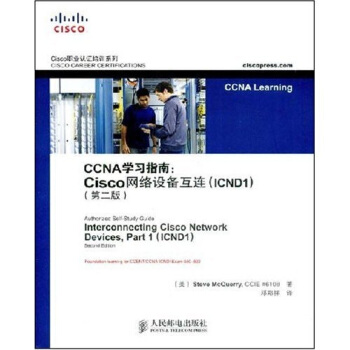
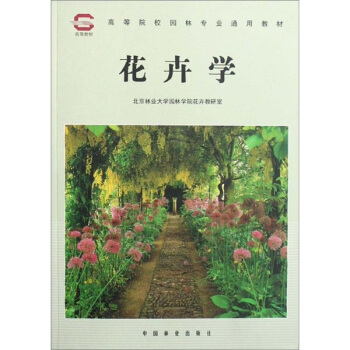

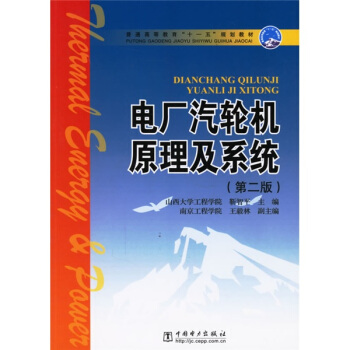
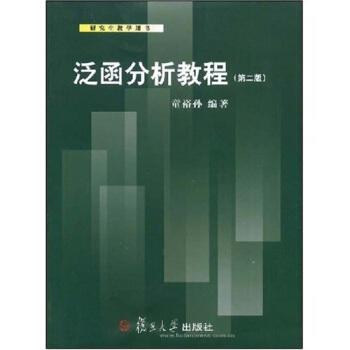
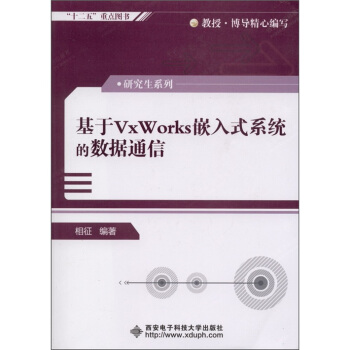
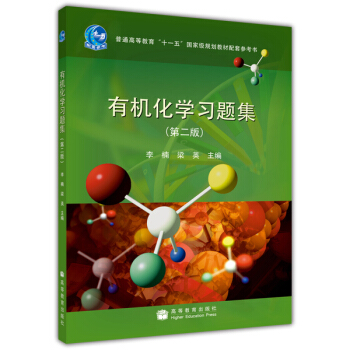
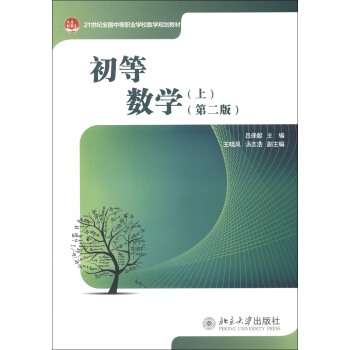
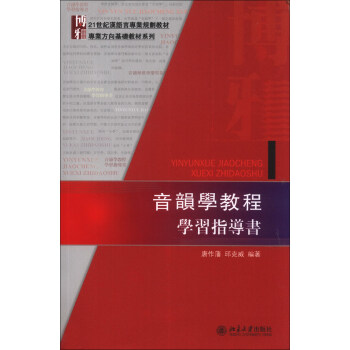
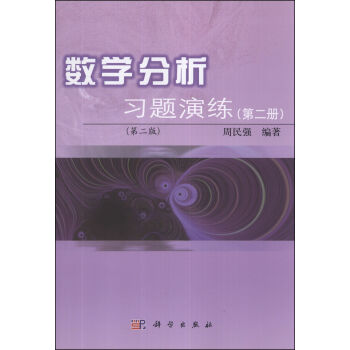

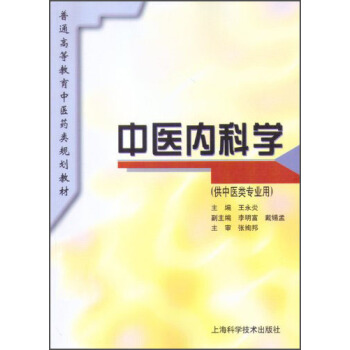

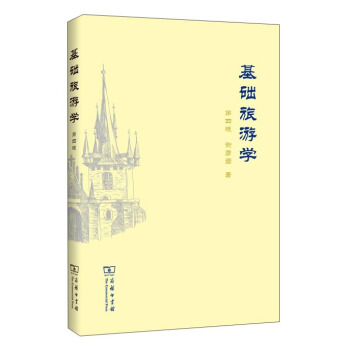
![數字通信:基礎與應用(第二版)/國外電子與通信教材係列 [Digital Communications Fundamentals and Applicstions,Second Edition] pdf epub mobi 電子書 下載](https://pic.windowsfront.com/11667515/5518a0c8N603ba7b4.jpg)
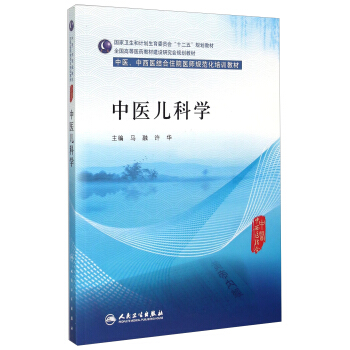
![光縴通信(第五版)(本科教學版) [Fiber Optic Communications, Fifth Edition ] pdf epub mobi 電子書 下載](https://pic.windowsfront.com/11713162/5593a54cN589be679.jpg)
